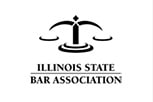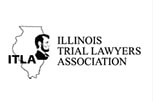Will increased speed on Illinois toll roads really lower accidents rate?
Many Illinois motorists drive cautiously on state roadways in order to stay within the posted speed limit. The House passed a bill in December of 2014, however, that will raise the speed limit on several stretches of toll roads in and around the Chicago area, according to a Quad-City Times report. Some people believe that increasing the speed limit to 70 mph will help to lower the accident rate by bringing city toll road speeds in line with the speed limits on other Illinois interstates. People who oppose the new speed limit argue that increased speeds on busy roadways may actually heighten motorists’ risk of car accidents. Auto accidents that occur at these higher rates of speed may also bring about more serious injuries and even increase the rate of motor vehicle accident fatalities in the state, a fact known by a Chicago accident lawyer.
(article continues below infographic)
The history of speed limits
In 1974, congress set a national maximum speed limit of 55 mph. The law was amended in 1987, allowing states to post speeds of up to 65 mph on rural highways. All states abided by this set speed limit until 1995 when the National Highway System Designation Act was passed, giving states the ability to set its own speed limits. The National Research Council, who studied how the national maximum speed limit affected drivers’ behaviors and the motor vehicle fatality rate, found the following:
- There were 4,000 fewer deaths attributed to car accident speeds in 1974 than there were in 1973, before the national maximum speed limit was set.
- Retracting the 55 mph national speed limit in 1995 resulted in a 15 percent increase in car accident deaths.
- Between 1995 and 2005, researchers found that approximately 12,545 fatalities were caused by the increased speed limits across the country.
- States that raised their highway speed limits to 65 mph in 1987 saw a 14 percent average increase in motor vehicle accidents and a 44 percent increase in traffic accident fatalities.
A 2002 study on the effects of increasing highway speed limits also found that when states increased the speed limit to 75 mph, there was a 38 percent rise in deadly car accidents. When states increased highway speeds to 70 mph, there was a 35 percent increase in the death rate.
Speed limits increasing across the country
According to the Insurance Institute for Highway Safety, at least 36 states in the nation have posted speed limits of 70 mph or higher on selected roadways. USA Today reported that Texas has a 40-mile stretch of highway where the posted speed limit is 85 mph, which is the highest in the nation. Although the National Highway Traffic Safety Administration reported that speed contributed to more than 30 percent of all fatal motor vehicle accidents in the nation, many states continue to increase the speed limit on highways.
How are speed limits chosen?
The Federal Highway Administration reported that lawmakers look at several factors before setting the speed limit for a specific area. Traffic volume, including how many vehicles, bicycles and pedestrians are present in the area, is a key concern. The design of the road can also help determine the posted speed limit. For example, a curvy road where drivers have limited sight would require a slower speed limit than a straight road where drivers could see a far distance ahead. Areas that have a large number of homes, schools and businesses present along the side of the road would also necessitate a slower speed limit, as drivers are slowing to turn into these establishments. Officials often look at the history of traffic accidents along the specific stretch of roadway when adjusting the speed limit as well.
Contributing factors to consider when raising the speed limit
Raising the speed limit can affect much more than a driver’s ability to drive fast. Vehicles perform differently when traveling at higher speeds, depending on how they are designed to grip the road. While smaller sports cars are better able to grip the road and make tight turns while going at a faster speed, narrow and tall SUVs and large trucks are more likely to tip over in these conditions.
A Chicago accident lawyer knows that higher speed limits are dangerous for motorists who have less driving experience or who engage in distractive activities while driving. People have less time to respond to driving hazards, such as objects in the road, bad weather conditions, or other drivers, when they are going faster. For example, tailgating vehicles that are going 75 mph are more likely to rear-end the car in front of them if traffic comes to an abrupt halt.
Drivers tend to travel at speeds five to 10 miles over the posted speed limit. Raising the speed limit to 70 mph may encourage motorists to drive even faster, which could increase their chances of causing a car accident.
Another, often overlooked effect of raising the highway speed limits is the increased amount of emissions that is released into the environment. Vehicles that travel at speeds greater than 50 mph release more carbon dioxide per mile, according to the IIHS. Since 1987, the issue of global warming has become an increasing concern.
There is no question that when motor vehicles collide while traveling at higher rates of speed, the results can be catastrophic. People are more likely to sustain fatal injuries in these high speed crashes. People who survive these high-impact accidents may suffer from life-changing disabilities, such as severe traumatic brain injuries, loss of limbs and paralysis. Injured victims of motor vehicle accidents may want to seek counsel from a Chicago accident lawyer regarding their legal rights.




